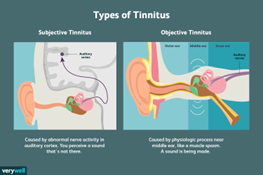A nurse is caring for a client who has a magnesium level of 3.2 mEq/L. Which of the following medications should the nurse expect to administer?
Calcium gluconate
Calcitonin
Magnesium oxide
Magnesium sulphate
The Correct Answer is A
A client with a magnesium level of 3.2 mEq/L has a higher-than-normal magnesium level, indicating hypermagnesemia. The nurse should expect to administer calcium gluconate.
Calcium gluconate is the antidote for hypermagnesemia, as it works to antagonize the effects of magnesium on the body. By administering calcium gluconate, the nurse can help counteract the effects of excess magnesium and normalize the client's magnesium levels.
Let's go through the other options:
B. Calcitonin: Calcitonin is not used to treat hypermagnesemia. Calcitonin is a hormone that regulates calcium and phosphorus levels in the body. It is used in certain conditions, such as hypercalcemia (high calcium levels), but it is not indicated for hypermagnesemia.
C. Magnesium oxide: Magnesium oxide is a form of magnesium supplement, and it is not appropriate for a client with hypermagnesemia, as it would further increase the magnesium level, exacerbating the condition.
D. Magnesium sulphate: Magnesium sulfate is also not appropriate for a client with hypermagnesemia, as it would further elevate the magnesium levels in the body. Magnesium sulfate is often used to treat magnesium deficiency or as a tocolytic agent to prevent premature labor.
Nursing Test Bank
Naxlex Comprehensive Predictor Exams
Related Questions
Correct Answer is B
Explanation
A. History of asthma:Verapamil is a calcium channel blocker and does not affect the airways or cause bronchospasm, unlike beta-blockers, which can exacerbate asthma.
B. History of heart failure:Verapamil has negative inotropic effects, meaning it decreases the strength of heart contractions. This can exacerbate heart failure, particularly in clients with reduced ejection fraction (systolic heart failure). It is generally contraindicated in clients with severe heart failure as it can worsen symptoms.
C. Systolic BP 110 mm Hg:While verapamil can cause a drop in blood pressure due to its vasodilatory effects, a systolic blood pressure of 110 mm Hg is not an absolute contraindication.
D. A blood creatinine level of 1.0 mg/dL is within the normal range (approximately 0.6–1.2 mg/dL for adults). Verapamil is not contraindicated in clients with normal renal function.
Correct Answer is D
Explanation
The nurse should include tinnitus (ringing in the ears) as an adverse effect of gentamicin in the client's teaching. Gentamicin is an aminoglycoside antibiotic commonly used to treat bacterial infections. One of the potential side effects of gentamicin is damage to the inner ear, which can lead to tinnitus.
Tinnitus is a concerning symptom as it may indicate ototoxicity, which is damage to the structures of the inner ear responsible for hearing and balance. If the client experiences tinnitus while taking gentamicin, it is essential to notify the healthcare provider immediately to assess the severity of the issue and consider appropriate interventions.
Let's go through the other options and explain why they are not adverse effects of gentamicin:
A. Urinary frequency: Urinary frequency is not a common adverse effect of gentamicin. Gentamicin primarily affects the kidneys, and its main concern is related to potential nephrotoxicity (kidney damage) rather than causing urinary frequency.
B. Constipation: Constipation is not an adverse effect typically associated with gentamicin. Gentamicin is not known to affect the gastrointestinal system or cause constipation.
C. Hypertension: Hypertension (high blood pressure) is not a known adverse effect of gentamicin. Gentamicin primarily affects the kidneys and the inner ear, as mentioned earlier, but it does not significantly impact blood pressure.

Whether you are a student looking to ace your exams or a practicing nurse seeking to enhance your expertise , our nursing education contents will empower you with the confidence and competence to make a difference in the lives of patients and become a respected leader in the healthcare field.
Visit Naxlex, invest in your future and unlock endless possibilities with our unparalleled nursing education contents today
Report Wrong Answer on the Current Question
Do you disagree with the answer? If yes, what is your expected answer? Explain.
Kindly be descriptive with the issue you are facing.
